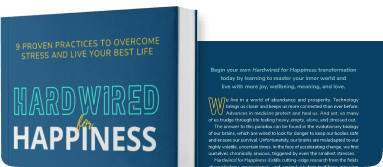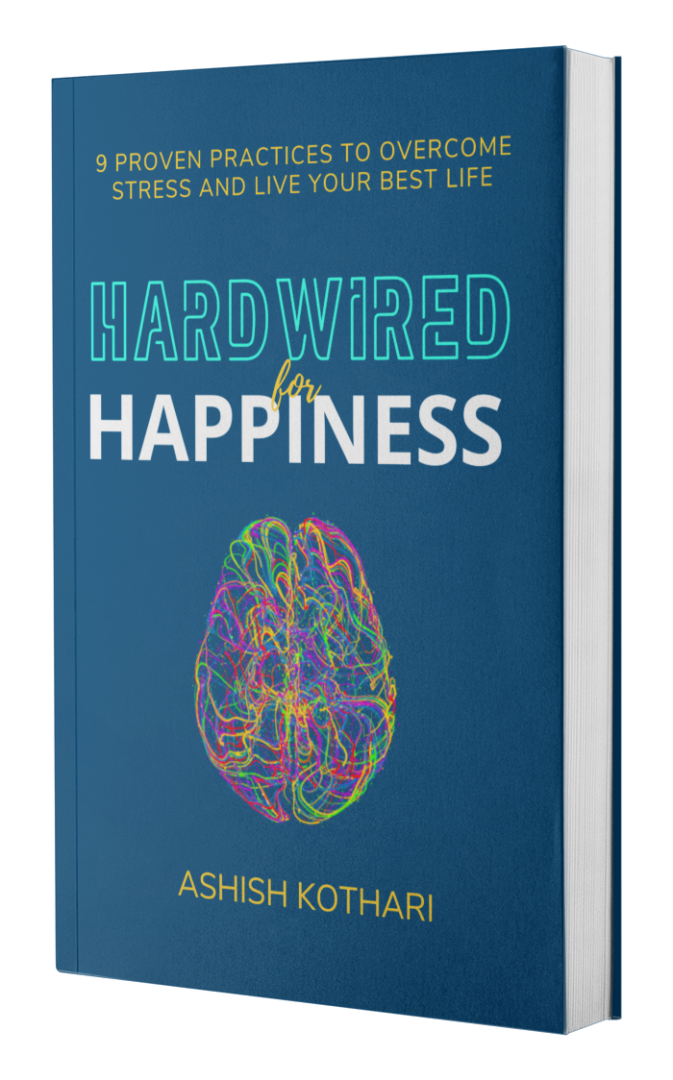6 Lessons on Turning Failure Into Fuel for Flourishing

What if failure wasn’t the end of the road, but the very fuel that powers resilience, growth, and flourishing? That’s what I discovered in my conversation with Dr. Tenzin Dadul
His story is a most remarkable journey of resilience, service, and flourishing.
Tenzin was born in a Tibetan refugee settlement. He was once expelled from school, forced to wash dishes to survive. And yet, guided by mentorship, relentless study, and a principle of “others before self,” he went on to earn multiple medical degrees, a PhD in leadership, and recognition as one of Michigan Ross’s “Best and Brightest” MBA graduates. Today, he is a physician, professor, and social entrepreneur leading a not-for-profit that has delivered free cancer and medical care to more than 150,000 underserved people worldwide.
Here are 6 lessons from our conversation that inspire not only how we live, but also how we lead and thrive.
Lesson 1: Failure Is Not Final
Early in his life, Tenzin failed out of school. He admitted, “I didn’t study, I flunked, and I was kicked out.” That could have been the end of the story.

But instead of resigning himself to a life defined by that failure, he found his way back. With the encouragement of a stranger and a relentless determination, he retook exams he had once failed, and this time not only passed but became one of the top scorers in physics.
As he put it, “Even if you fail, you are not a failure. You can re-begin.”
Actionable Insight:
- Reframe failure as feedback. Every setback carries the seeds of growth if we’re willing to start again.
- In your workplace, normalize second chances. Don’t write people off after a misstep, invest in their potential.
Lesson 2: The Golden Ticket of Mentorship
When Tenzin speaks about mentorship, his eyes light up. “Mentorship is not just changing a life, it changes generations,” he told me.
He himself was lifted by teachers and mentors who saw something in him even when he couldn’t see it himself. In turn, he has mentored more than 400 medical and undergraduate students, many from underserved backgrounds.
As a Buddhist, he sees teachers as “guiding lights that open unlimited doors.” And in today’s world, where time is scarce and busyness is celebrated, his example reminds me of what truly matters. “Because I realized that if you educate one person, it can change generations,” he added.
I reflected back to my own journey. From my parents to the many mentors at McKinsey and beyond, my path has been shaped by those willing to guide me. It’s why I never say no when someone asks for mentorship. I know firsthand the ripple effect it can create.
Actionable Insight:
- Make mentorship a core practice, not an afterthought. Even 30 minutes a month can change a trajectory.
- Leaders: build systems of peer mentorship inside your organizations. Don’t just rely on formal programs, create a culture where “lifting as you climb” is the norm.
Lesson 3: Flourishing Means “Others Before Self”
When I asked Tenzin what flourishing meant to him, he didn’t hesitate: “Flourishing means how we can make the world a better place… For me, the motto of my school was ‘others before self.’ That’s what flourishing means.”
It struck me how aligned this is with Happiness Squad’s Sunflower model. Gratitude, compassion, purpose, and community, these are not abstract concepts. They are daily practices.
Tenzin embodies them in action: returning to his community after his medical training, offering free care in monasteries, and building a not-for-profit that now mobilizes 600 volunteers globally.
When we consciously align with service, gratitude, and community, anything is possible.
Actionable Insight:
- Anchor your work in service. Ask daily: “Who does this help?”
- Build rituals of gratitude and community connection in your teams. Flourishing multiplies when shared.
Lesson 4: Healthcare as a Human Right
Perhaps the most inspiring part of Tenzin’s journey is his not-for-profit, which has provided free cancer, dental, and medical treatment to over 150,000 underserved people across India, Nepal, and beyond.
“Healthcare is not a privilege. It is a human right,” he said.
Behind that statement lies years of grassroots work, fundraising, and mobilizing physicians worldwide. What impressed me most was his humility: he gave all credit to his team. “Because of them, we have been able to achieve this much over 13 years.”
Actionable Insight:
- In your organization, ask: What would it look like if we treated wellbeing not as a perk, but as a right?
- For leaders, this means designing workplaces that don’t just extract productivity but actively invest in people’s health, energy, and wholeness.
Lesson 5: Burnout and the Power of Balance
Our discussion highlighted a paradox well-documented in research: healthcare professionals, despite their mission to heal, are among the most vulnerable to burnout.
Tenzin shared his view: “Healthcare workers care for everyone else but rarely look after themselves.” His own solution is to work four days a week, leaving three days for recovery, spirituality, journaling, and service. As he put it, “Your cup must be full before you can pour into others.”

Now, I realize not everyone can shift to a four-day week. Most of us live within systems and structures that expect five day, even more, of output. But what we can do is learn from the principle behind Tenzin’s practice: balance is non-negotiable.
If you can’t restructure your work week, you can still build balance into your days and weeks:
- Protect small windows for renewal, whether that’s 10 minutes of journaling, a walk outdoors, or mindful breathing between meetings.
- Set clearer boundaries on your workday. Research shows that even micro-recoveries (short breaks, intentional lunch away from screens) reduce stress and improve focus.
- Leaders can experiment with creative models beyond four-day weeks: no-meeting Fridays, mandatory recharge days, or flexible start/stop times that respect different energy rhythms.
Balance doesn’t always mean fewer hours. It means designing rhythms of rest and recovery so we can sustain high performance without eroding our health.
Actionable Insight:
- Protect your own energy by building renewal practices into each day, however small.
- As leaders, model boundaries and create systemic levers — whether through flexible schedules, recharge rituals, or culture shifts — that allow your teams to thrive, not just survive.
Lesson 6: We Shape the System and It Shapes Us
The system is not separate from us.
Too often, when we talk about burnout, disengagement, or inequity, we fall into blame. It’s the system. Or it’s the individual. But the truth is more nuanced. As I shared during our conversation:
“The system is made by us and shaped by us. There is a fundamental nature of interbeing between humans and the societies we inhabit. It’s not either/or, we inter-are.”
As Thich Nhat Hanh taught, once we recognize this interdependence, we can stop looking for a single villain and start untangling the threads of complexity. We can address wellbeing at multiple levels:
- Individual: cultivating awareness of when our own cups are empty.
- Team: creating rituals of check-ins, where people pause to share how they’re really doing.
- System: redesigning workloads, incentives, and culture so they sustain rather than drain.
This middle way frees us from the paralysis of blame. Instead of pointing fingers, we begin weaving solutions. We go from merely surviving the craziness to truly thriving.
Actionable Insight:
- As a leader, build “check-in” practices into meetings to surface energy levels before diving into tasks.
- Challenge your organization to treat flourishing as both a system design question and a personal responsibility.
- Remember: we don’t exist apart from our workplaces or societies, we co-create them, one interaction at a time.
Conclusion: Anything Is Possible
Tenzin’s journey reminds us that failure doesn’t diminish us. It can be the raw fuel for flourishing, if we align with service, gratitude, and community.
His story is living proof: the boy once expelled from school now heals thousands, mentors hundreds, and models what flourishing can look like in action.
And for me, it’s a reminder that flourishing is not about individual achievement. It’s about lifting others as we rise and designing workplaces where everyone has the chance to thrive.
Learn more about Tenzin on Linkedin.
Listen to the podcast with Ashish and Tenzin below. You can also listen on Apple Podcasts.
Access and subscribe to all of the episodes of the Flourishing Edge Podcast here.
Make Flourishing Your Competitive Edge.


